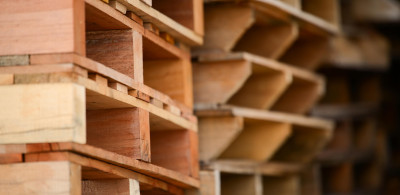Imagine you are a business that starts importing "X" products. You thought you had properly filled out all the required forms ensuring the success of your customs clearance. Then, when your products arrive, the CBSA tells you that they cannot enter Canada. As a reason, you are told something you have not thought of and that is so important: the wooden pallets on which your products were sent do not comply! Make no mistake about it: importing certain wood products into Canada is strictly regulated by the CBSA and the CFIA.
Different directives depending on the wooden product
First, it is important to know that not all wood products are regulated in the same manner. The rules change depending on the type of product, their origin, their size, etc. Generally speaking, untreated or non-manufactured wood products are not regulated in the same manner as treated or manufactured wood products. In general, when it comes to untreated or non-manufactured wood products, you should refer to the directives that determine whether these wood products can enter Canada.
For example, in regard to wood packaging material (such as non-manufactured wooden pallets), you will find everything you need to know on the CFIA website in policy directive D-98-08. In regard to untreated wood products and other wood products, bamboo and bamboo products, from all regions of the world other than the continental United States, you will find the applicable rules on the CFIA website site in policy directive D-02-12. Note that other directives exist depending on the types of wood products.
If we go back to the example of the non-compliant wooden pallets, a likely reason why they could not enter Canada is that they are made of non-manufactured wood and no marking is visible to certify that the wood has been treated. In fact, according to the applicable directives stated in policy directive D-98-08, as a general rule: “A mark or logo, officially endorsed by theNPPO of the country from which the material originates must be permanently affixed to each unit of packaging.”
Why are there directives for importing untreated or non-manufactured wood products into Canada?
Untreated or non-manufactured wood may contain parasites or pests that may be harmful to Canadian flora; that is why it is inspected as soon as it arrives and strict rules are in place. Often, treated and manufactured wood products are exempt from the directives because these products have undergone processes that have considerably reduced the risk of containing parasites or pests.
Protected species
Before importing wood products into Canada, wood species must also be taken into consideration. Some species are protected and the importation of these may be prohibited. You can refer to the Government of Canada website and its CITES section to check which species are prohibited from entering Canada.
Ask the experts
In conclusion, it should be noted that importing wood products can be complex. For more information or assistance, our customs advisors remain at your disposal. You can reach us today at consultations@w2c.ca or by phone at 514 368-2637, option 2.

